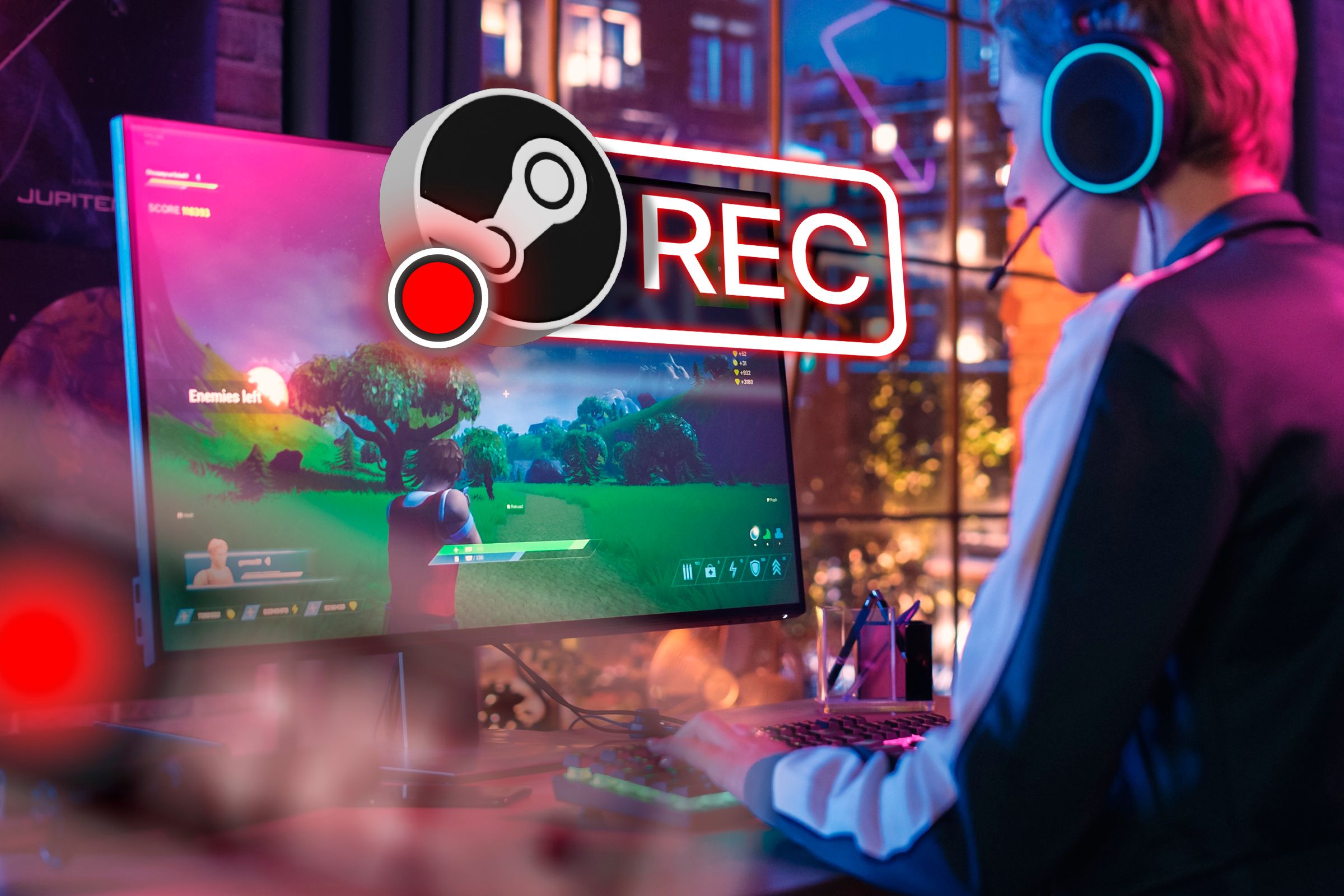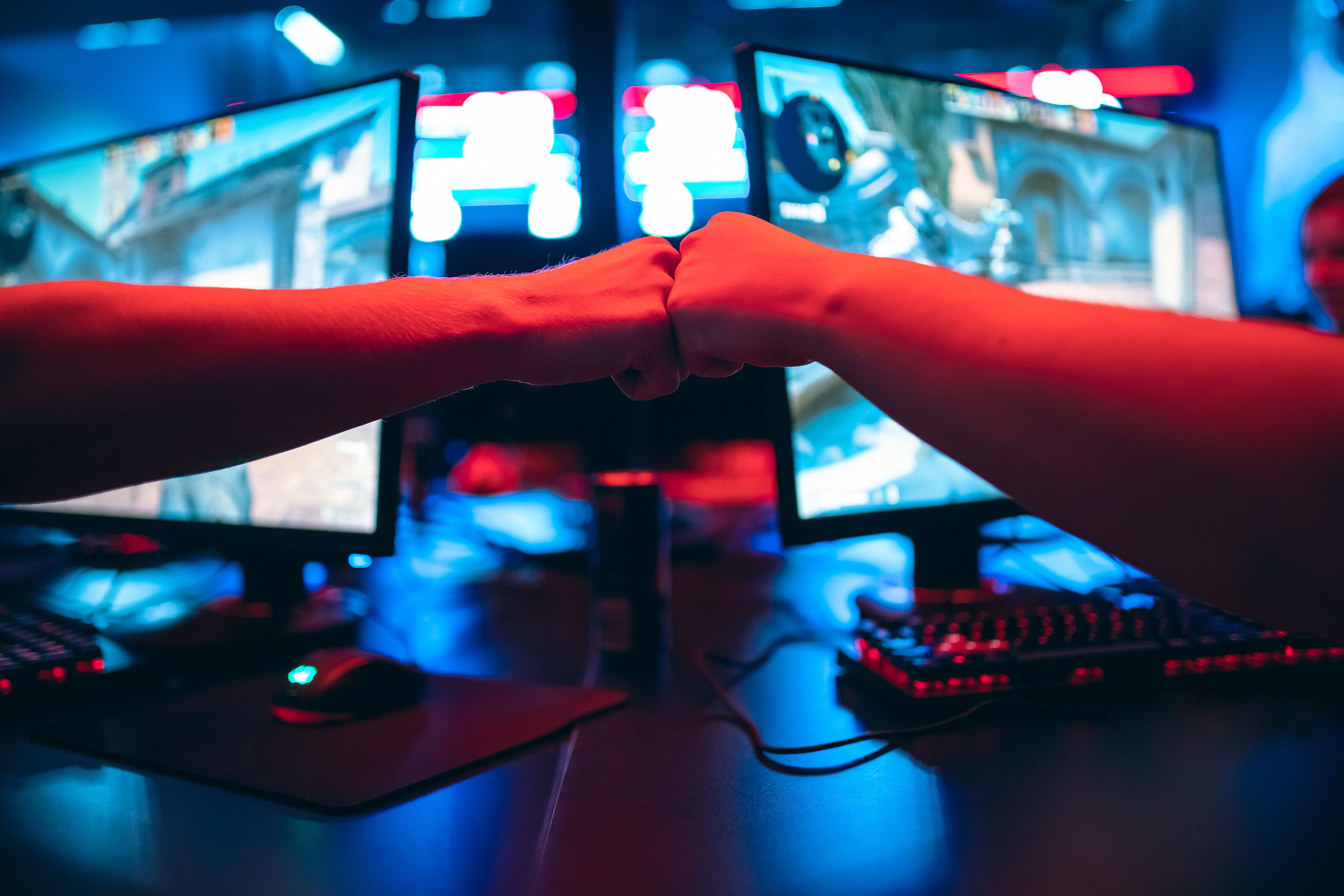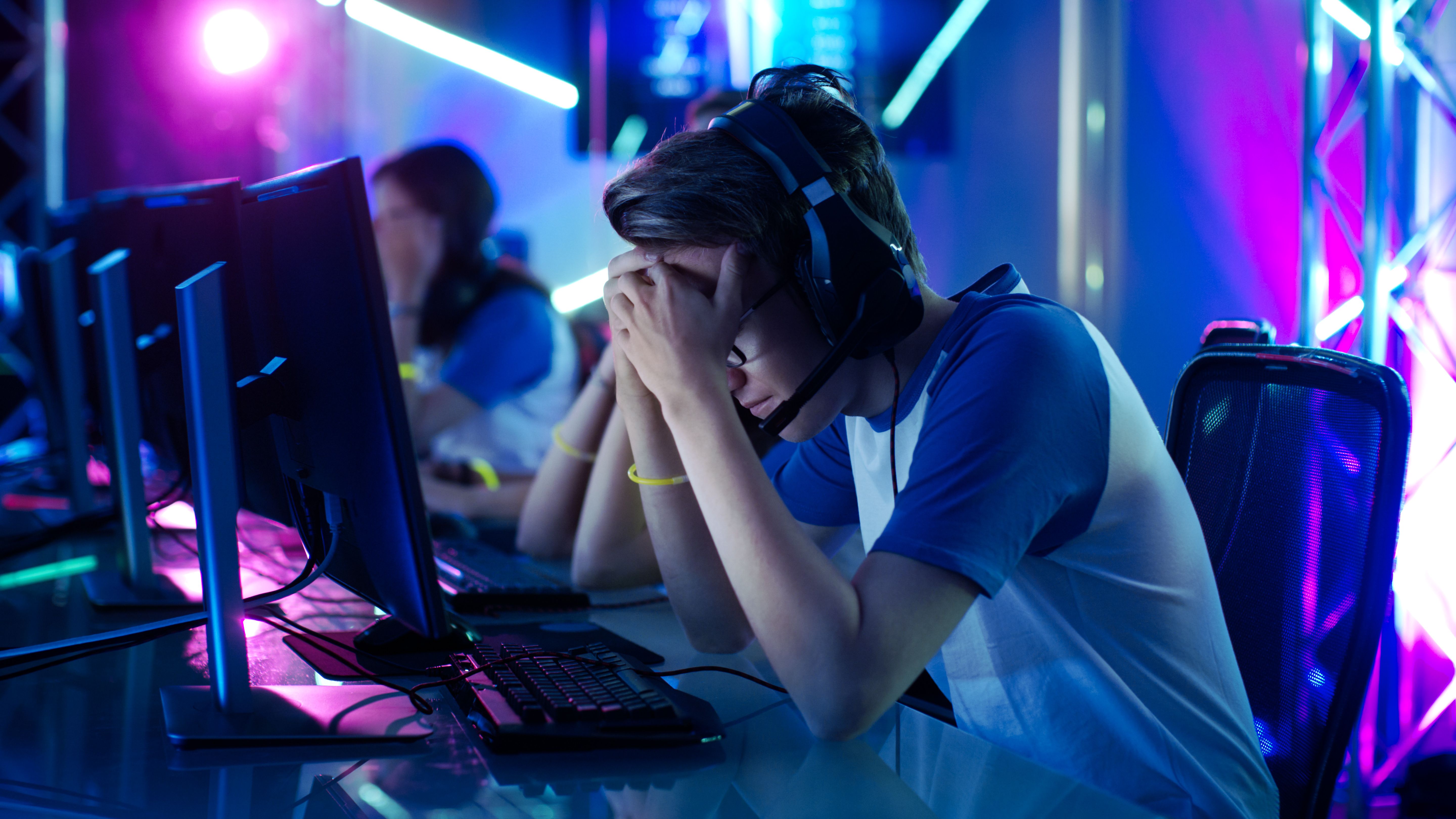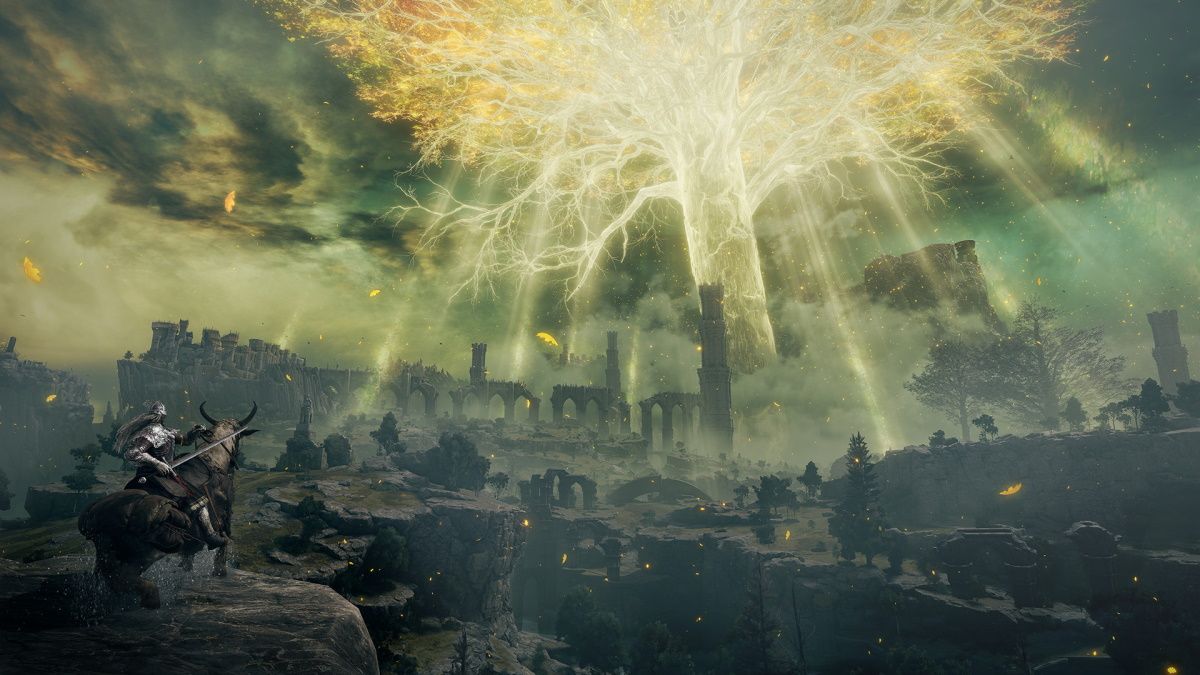Key Takeaways
- Single-player games can feel lonely without real-time interactions or NPCs, especially when you’re used to the social aspect of multiplayer gaming.
- Multiplayer games can be addictive, especially if you enjoy earning better ranks and hate the feeling of missing out on time-limited rewards.
- Single-player games can help bridge the gap by adding multiplayer elements.
Single-player games provide a large variety of gameplay mechanics, heartfelt stories, and unique worlds. So, why is it that I still can’t get myself to play them, opting instead for the same few online multiplayer games that I’ve been playing for years?
Single-Player Feels Lonely and Overwhelming
The moment you step into the world of a single-player game, you become the only real human that populates that world. You know that you can’t randomly bump into other players and play or interact with them. This makes for a very lonely feeling, which is further augmented when the game in question lacks NPCs or a narrator.
The whole game revolves around you—events, quests, world exploration, and important decisions all rest on your shoulders. Even when the game developer tries their hardest to give NPCs their own virtual lives in the form of routines, as games like Red Dead Redemption 2 do, you’re still staunchly aware that this is just an NPC acting like a human.
Perhaps the worst part is that there’s nobody to see or react to the game or your actions, at least not in real-time. When I pull off an amazing move, encounter a rare enemy, or experience a funny glitch, I want my friends to be there, reacting with me. Fortunately, taking screenshots and videos while gaming can help mitigate this sense of isolation by allowing me to share my favorite moments at a later point.
There’s also the fact that single-player can be overwhelming. To stand out in an endless sea of games, a new game needs to be original, feature a unique story, and introduce interesting game mechanics. All of this, combined with a unique control layout, makes for an overwhelming experience whenever I first launch a new game. Triple-A games are the worst offenders here because they try their hardest to impress you with cinematic cutscenes and stunning visuals, often at the expense of clear instructions to the core gameplay loop.
For example, even though I finished Horizon: Zero Dawn a couple of years ago, I found Horizon: Forbidden West incredibly overwhelming when I first started playing. As I struggled to recall how the original game ended and followed the new story, the game kept stopping me from progressing with a bunch of overpowered enemy machines. I eventually figured out the control scheme and defeated them, but I was so stressed out that I closed the game immediately after.
The unknown game mechanics of a freshly released game, combined with the profound feeling of loneliness, can me with a sense of dread, even if the game is lively. This anxious feeling is perfectly embodied in single-player soulsborne titles like Lies of P. It doesn’t help the fact that games in this genre are extremely difficult. You’re at the mercy of overpowered enemies with nobody to help you, so the only way to progress is to learn how to play on your own. Scary!
Online Games Keep You Hooked
Video games can be addictive, but online games have been masterfully crafted to hijack your brain’s dopamine receptors. Repeating dopamine-releasing activities can get you hooked on a game, and many online games are built around a set of activities that do just that.
For starters, the vast majority of modern online games follow a live service model, where the game receives a steady stream of updates that add new events, skins, weapons, maps, and so on. Many of these are limited-time, which induces a fear of missing out (FOMO) for players who feel pressured to participate to avoid missing exclusive content.
These rewards are most often rare cosmetic skins that you can purchase for a limited time, or overpowered weapons and equipment that won’t return to the game, at least not for a while. Some of the more toxic implementations of these microtransactions—such as lootboxes—are not that different from gambling. I don’t personally spend money on microtransactions, but I do enjoy earning free skins from events, so I sometimes play for hours to unlock them.
The social aspect of games further amplifies the fear of missing out, especially if you play online games with friends. If a friend tells you about a fun in-game experience they had, it’s easy to feel like you want to be there for the next one, so you’re practically “forced” to participate. That’s how I started playing games like Rocket League and Call of Duty: Warzone. Eventually, I got hooked and started playing them even in my alone time.
In addition to limited-time events, many online games have daily and weekly quests or challenges with powerful rewards. These entice gamers to log in daily and spend at least 15–30 minutes completing a list of menial tasks. This process is often referred to as “grinding,” a term used throughout the gaming world to refer to repetitive tasks that reward the play with gradual progress.
I picked up Fallout 76 recently, and the game is jam-packed with limited-time events and daily quests that I need to grind out if I want to unlock the best weapons and armor. This, combined with the free daily login reward, is what keeps me playing daily. As for whether that’s a good thing or not—I’ll leave that to you to decide.
Gamers Love a Competitive Edge
PvP (player vs. player) games provide an opportunity to compete directly against one another, on your own or with teammates. The challenge of outsmarting your enemies is incredibly engaging, and defeating them in a one-on-one fight is one of the most satisfying feelings a game can give you. You know that the person you defeated is a real player, just like you, and not the computer like in single-player games.
Winning matches is arguably the most satisfying thing in modern online gaming, especially tough closely-fought battles where you manage to “carry” your team to victory despite the odds. Many online games have a ranking system, where players climb a ladder by winning to reach higher ranks. Having a high rank is strongly associated with garnering recognition and praise from other players, which feels gratifying. I had a platinum rank in League of Legends, which isn’t a particularly high rank but my lower-ranked friends thought it was amazing.
In my opinion, climbing ranked ladders in PvP games is the most addictive mechanic. As your skill and game knowledge improve, you get better at the game, which means you can win more matches and rank higher. Climbing a ladder takes a lot of hard work because you’re competing against other players who want to do the same. The required effort can make the grind feel like a real job, so finally, getting that rank you always wanted makes you feel like all the hard work was worth it.
It’s as if the meta-progress made around the game is as important and addictive as what you’re actually doing in the game itself.
There’s Still Hope for Single-Player
Given everything I’ve said so far, you might think that I hate single-player games, but I really don’t. I love single-player games; I just wish I had more patience to play them. When I do eventually click with a single-player game, I’m often met with some of the most incredible experiences gaming has to offer.
Banishers: Ghosts of New Eden is the only single-player game I finished this year, and it was awesome. The story, characters, and even the combat were fantastic. The only issue was that I had to force myself to boot it up each time I wanted to play, but after the first 10–15 minutes of the session, I was fully immersed in the world and couldn’t stop playing. I also found that not trying to finish 100% of it and playing every evening without procrastination helped me finish it.
I also find that games that add multiplayer elements to the single-player experience can “trick” me into playing single-player stories. Co-op is an obvious solution because you get to play a single-player game with one or more friends. If we ignore the grind, Fallout 76 honestly feels a lot like a regular single-player Fallout game that just happens to have other players in the world.
A unique solution is what Elden Ring does in the single-player—players can encounter messages left by other players in the game world, and even see the ghosts of other players who are playing alongside them. This makes you feel like you’re playing online, but you’re actually on your own little adventure.
Another idea that works for me and my friends is streaming. We stream single-player games to each other on Discord, giving us a chance to experience a single-player game together.
If you share the struggle and can’t concentrate on single-player games, I encourage you to give them a chance to redeem themselves. Pick up a single-player game that looks interesting, and force yourself to play it. It might feel like a chore initially, but you’ll learn to love the game once you get to know it.








